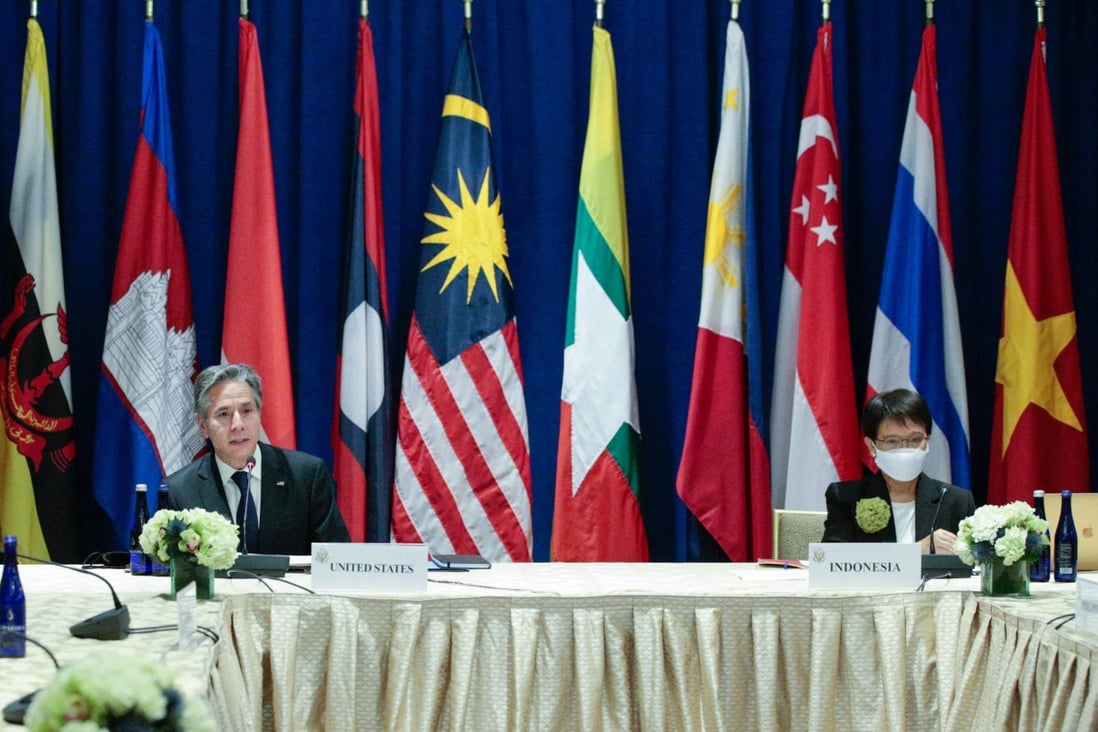Trump's Trade Offensive And The Future Of US Financial Primacy

Table of Contents
The Trump Administration's Trade Policies: A Deep Dive
The Trump administration implemented a series of protectionist trade policies, significantly altering the global economic landscape. These policies aimed to "rebalance" trade, focusing on reducing the US trade deficit and protecting domestic industries. Key actions included imposing tariffs on steel and aluminum imports, triggering retaliatory measures from various countries, and initiating a protracted trade war with China. These actions, while intended to bolster American manufacturing and jobs, had far-reaching consequences for global trade relationships and the overall stability of the international financial system.
Impact on Global Trade Relationships
The Trump administration's trade policies significantly deteriorated relationships with key trading partners. The aggressive approach fostered distrust and undermined the multilateral trading system.
- Increased trade tensions with China: The trade war with China involved escalating tariffs on billions of dollars worth of goods, disrupting supply chains and harming businesses on both sides.
- Renegotiation of NAFTA (USMCA): The renegotiation of the North American Free Trade Agreement, resulting in the USMCA, reflected a shift towards bilateral agreements and a departure from the principles of multilateral free trade.
- Impact on WTO membership and global trade rules: The US administration's frequent challenges to the World Trade Organization (WTO) raised concerns about the future of the global trading system and its ability to resolve trade disputes effectively. This weakened the institution crucial for maintaining global trade stability and upholding international trade laws.
Short-Term Economic Effects of the Trade War
The immediate economic consequences of the trade war were multifaceted and included increased inflation and significant market volatility. The effects were unevenly distributed across different sectors of the US economy.
- Impact on specific sectors (e.g., agriculture, manufacturing): The agricultural sector, particularly, was heavily impacted by retaliatory tariffs imposed by China. Manufacturing also faced challenges due to increased input costs and reduced exports.
- Consumer price increases due to tariffs: Tariffs on imported goods led to higher prices for consumers, contributing to inflation.
- Stock market reactions to trade policy announcements: Uncertainty surrounding trade policy announcements resulted in significant stock market fluctuations. Investor confidence, a key component of US financial primacy, was undeniably affected.
Challenges to US Financial Primacy
The Trump administration's trade offensive posed significant challenges to US financial primacy. The aggressive approach undermined confidence in the stability of the US dollar and the global financial system. This instability created opportunities for alternative systems and currencies to gain prominence.
Loss of Global Trust and the Dollar's Hegemony
The trade wars raised questions about the predictability and reliability of US economic policy, potentially threatening the dollar's status as the world's reserve currency.
- Increased use of alternative currencies in international trade: Some countries started exploring alternatives to the dollar in international transactions to reduce their dependence on the US financial system.
- Diversification of foreign exchange reserves by central banks: Central banks began diversifying their foreign exchange reserves, reducing their reliance on the US dollar.
- Potential for a multipolar global financial system: The erosion of trust in the US dollar could accelerate the shift towards a multipolar global financial system, with multiple currencies playing a significant role.
Impact on Foreign Investment and Capital Flows
The trade policies created uncertainty, impacting both inward and outward foreign direct investment (FDI).
- Reduced foreign investment in the US: Businesses became hesitant to invest in the US due to the unpredictable nature of trade policy.
- Increased uncertainty for multinational corporations: Multinational corporations faced challenges in planning their global operations due to the instability in the international trading environment.
- Impact on US competitiveness in global markets: The trade wars negatively affected US competitiveness in global markets, as businesses struggled with increased costs and uncertainty.
Opportunities and Potential for Recovery of US Financial Primacy
While the trade offensive presented significant challenges, opportunities exist for the US to regain its dominance in global finance. This requires a strategic shift towards rebuilding global alliances and investing in domestic economic strength.
Rebuilding Global Alliances and Trust
Restoring positive relationships with trading partners is paramount. A collaborative approach is essential to rebuild confidence in the stability of the US-led global financial system.
- Strengthening multilateral institutions like the WTO: Supporting and reforming the WTO is critical to maintaining a rules-based international trading system.
- Engaging in collaborative trade agreements: Participating in and negotiating fair and mutually beneficial trade agreements is crucial for fostering trust and cooperation.
- Promoting free and fair trade practices: A commitment to free and fair trade practices will demonstrate the US's commitment to a stable and predictable global economic environment.
Investing in Domestic Infrastructure and Innovation
Strengthening the domestic economy is essential for maintaining US financial primacy. Investing in infrastructure and innovation will enhance US competitiveness on the global stage.
- Improving US infrastructure to enhance competitiveness: Modernizing infrastructure, including transportation and communication networks, will attract investment and boost productivity.
- Investing in research and development to drive technological innovation: Investing in R&D is crucial for maintaining a technological edge in the global economy.
- Promoting education and workforce development: A highly skilled and educated workforce is essential for maintaining US competitiveness.
Conclusion
Trump's trade offensive significantly challenged US financial primacy, raising doubts about the dollar's hegemony and accelerating the potential for a multipolar financial system. The aggressive protectionist policies eroded global trust and created uncertainty, impacting foreign investment and hindering US competitiveness. Rebuilding this trust and investing in domestic economic strength are crucial for securing the future of US financial primacy. Understanding the intricacies of US financial primacy and the impact of trade policies is crucial. Further research into the ongoing effects of these policies is essential to inform future economic strategies and ensure the continued strength of the US economy in the global marketplace. Continue exploring the topic of US financial primacy to stay informed about crucial economic developments.

Featured Posts
-
 The End Of The Easter Truce An Assessment Of The Renewed Fighting In Ukraine
Apr 22, 2025
The End Of The Easter Truce An Assessment Of The Renewed Fighting In Ukraine
Apr 22, 2025 -
 Dealers Double Down Fighting Back Against Ev Sales Requirements
Apr 22, 2025
Dealers Double Down Fighting Back Against Ev Sales Requirements
Apr 22, 2025 -
 Revolutionizing Voice Assistant Development Open Ais New Tools
Apr 22, 2025
Revolutionizing Voice Assistant Development Open Ais New Tools
Apr 22, 2025 -
 China And Indonesia Deepen Security Cooperation
Apr 22, 2025
China And Indonesia Deepen Security Cooperation
Apr 22, 2025 -
 Alterya Acquired By Chainalysis A Strategic Move In Blockchain And Ai
Apr 22, 2025
Alterya Acquired By Chainalysis A Strategic Move In Blockchain And Ai
Apr 22, 2025
